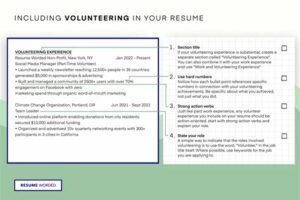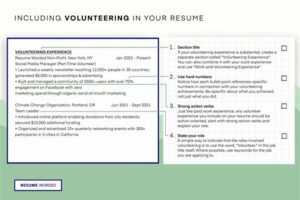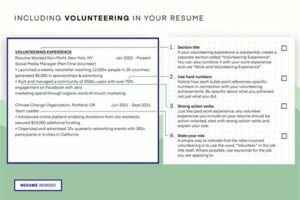Table of Contents
Looking to create a strong volunteer program? Discover the essential steps and strategies to build an effective and successful volunteer program that will make a positive impact in your organization or community. From recruitment and training to engagement and recognition, learn how to attract and retain dedicated volunteers who will contribute their time and skills towards your mission.
Are you looking to build a strong volunteer program that will have a lasting impact on your organization? Look no further! In this guide, we will provide you with essential tips and strategies to help you develop a volunteer program that not only attracts dedicated individuals but also fosters long-term commitment. From recruitment to retention, we will cover all aspects of building a successful volunteer program. So, whether you are starting from scratch or looking to improve your existing program, this comprehensive guide is here to support you every step of the way.
Introduction
Building a strong volunteer program is essential for any organization or nonprofit looking to make a positive impact in their community. Volunteers are the backbone of many organizations, providing much-needed support and resources to help achieve their goals. However, creating an effective and sustainable volunteer program requires careful planning, recruitment strategies, and ongoing engagement. In this article, we will explore practical steps on how to build a strong volunteer program that attracts dedicated individuals and ensures long-term success.
Identify Your Needs
The first step in building a strong volunteer program is to identify your organization’s specific needs and goals. What tasks or projects require additional assistance? Are there specific skills or qualifications you’re looking for in volunteers? By clearly defining your needs, you can tailor your recruitment efforts and ensure that you attract individuals who are genuinely interested and qualified to contribute to your cause.
Create Engaging Volunteer Opportunities
Once you’ve identified your organization’s needs, it’s time to create engaging volunteer opportunities. Craft detailed job descriptions that outline the responsibilities, time commitment, and desired skills for each role. Clearly communicate the impact that volunteers will make by actively participating in these roles. This will help potential volunteers understand the value of their contributions and motivate them to join your program.
Develop a Recruitment Strategy
To attract dedicated volunteers, you need to develop a comprehensive recruitment strategy. Start by reaching out to your existing network, such as staff members, board members, and current volunteers, who may be able to refer individuals with similar interests. Additionally, leverage social media platforms, community bulletin boards, local newspapers, and online volunteer matching websites to spread the word about your program and attract a diverse group of individuals who are passionate about your cause.
Implement a Screening Process
While it’s essential to welcome volunteers with open arms, it’s equally important to implement a screening process to ensure the safety and compatibility of all participants. Conduct background checks and reference checks for volunteers who will be working closely with vulnerable populations or handling sensitive information. Additionally, consider conducting interviews or informal meetings to gauge a volunteer’s commitment, skills, and alignment with your organization’s values.
Provide Comprehensive Training
Once you’ve recruited a group of dedicated volunteers, it’s crucial to provide comprehensive training to ensure they have the necessary knowledge and skills to carry out their roles effectively. Develop training materials that cover the organization’s mission, policies and procedures, as well as any technical skills required for specific roles. By investing time and resources in training, you empower volunteers to make a meaningful impact and contribute to the overall success of your program.
Establish Clear Expectations
To build a strong volunteer program, it’s important to establish clear expectations from the outset. Clearly communicate the time commitment, responsibilities, and desired outcomes for each volunteer role. Set realistic goals and provide regular feedback to help volunteers understand their progress and areas for improvement. By establishing clear expectations, you foster a sense of accountability and ensure that volunteers feel valued and supported throughout their engagement.
Cultivate a Positive Volunteer Experience
A positive volunteer experience is key to attracting and retaining dedicated individuals. Regularly check in with your volunteers to ensure they feel supported and appreciated. Provide opportunities for them to share feedback and suggestions for improvement. Recognize their contributions through public acknowledgments, certificates, or volunteer appreciation events. By cultivating a positive volunteer experience, you create a sense of belonging and loyalty that encourages long-term commitment.
Encourage Collaboration and Teamwork
Building a strong volunteer program also involves fostering collaboration and teamwork among your volunteers. Encourage opportunities for volunteers to work together on projects, share ideas, and learn from one another. This not only enhances the impact of their work but also creates a supportive community where volunteers can bond and build lasting relationships. Consider organizing regular team-building activities or group meetings to facilitate this sense of camaraderie.
Evaluate and Adjust
Lastly, building a strong volunteer program requires ongoing evaluation and adjustment. Regularly assess the effectiveness of your program by tracking volunteer satisfaction, retention rates, and the impact of their contributions. Use this feedback to identify areas for improvement and make necessary adjustments to ensure the continued success and growth of your volunteer program.
Conclusion
By following these steps and investing time and resources into building a strong volunteer program, your organization can attract dedicated individuals who are passionate about your cause. Remember, the success of your program relies on clear communication, comprehensive training, ongoing engagement, and a positive volunteer experience. Together, you can make a significant and lasting impact in your community.
How To Build A Strong Volunteer Program
Creating a strong volunteer program starts with developing a comprehensive recruitment strategy that clearly outlines the types of volunteers needed, the skills and qualifications required, and the channels through which recruitment efforts will be focused. This can include targeting online platforms, social media, local community centers, and other relevant spaces to raise awareness and attract potential volunteers.
A crucial step in building a strong and reliable volunteer program is implementing effective screening and selection procedures. This involves conducting background checks, interviews, and reference checks to ensure that volunteers have the necessary skills, experience, and commitment to fulfill their roles successfully. Additionally, creating a consistent and fair selection process helps maintain a high-level of professionalism.
To ensure volunteers are adequately prepared for their roles, it is essential to provide comprehensive training and orientation programs. These programs should cover topics such as organizational values and mission, job responsibilities, policies and procedures, and any necessary technical or skill-specific training. By investing in volunteer training, organizations can empower volunteers to confidently contribute to their programs and make a lasting impact.
One of the foundations of a strong volunteer program is establishing clear roles and responsibilities for each individual. By defining expectations and creating role descriptions, volunteers can understand what is expected of them and how their contributions align with the organization’s goals. Clarity in roles helps volunteers feel valued and purposeful in their work, leading to increased engagement and overall program success.
Building a strong volunteer program involves cultivating a positive and supportive culture that encourages open communication, collaboration, and mutual respect. By fostering an inclusive environment, where both volunteers and staff feel valued and appreciated, organizations can maintain a dedicated and motivated volunteer base. Recognizing volunteers’ contributions and providing ongoing support and feedback also helps foster a sense of belonging and commitment.
To build a strong volunteer program, it is crucial to implement effective recognition and retention strategies. This can include acknowledging volunteers’ efforts through various means, such as volunteer appreciation events, personalized thank-you notes, or public recognition. Regularly evaluating and addressing volunteers’ needs, providing growth opportunities, and actively involving them in decision-making processes contribute to their long-term commitment and overall program success.
Building strong relationships with volunteers is key to their ongoing engagement and commitment. Regular and meaningful communication, such as newsletters, group meetings, or one-on-one check-ins, helps volunteers feel connected to the organization and their peers. Additionally, fostering opportunities for volunteers to collaborate, share experiences, and build relationships with staff and other volunteers can enhance their sense of belonging and deepen their commitment.
Lastly, a strong volunteer program requires ongoing evaluation and continuous improvement. Regularly assessing the program’s effectiveness, gathering feedback from volunteers, and addressing challenges or areas of improvement ensures its relevance and long-term success. This can involve adjusting recruitment strategies, streamlining processes, or developing new initiatives to maximize the program’s impact and efficiency.
Building a strong volunteer program is crucial for any organization seeking to make a positive impact in their community. A well-structured and effective volunteer program can not only enhance an organization’s ability to achieve its mission but also create a sense of fulfillment and satisfaction among volunteers.
To build a strong volunteer program, organizations should consider the following key points:
- Clearly define your organization’s mission and goals: Volunteers are more likely to engage with an organization that has a clear and compelling mission. Clearly articulating your mission and goals will help attract volunteers who share your passion and vision.
- Develop a volunteer management plan: A comprehensive volunteer management plan outlines the roles and responsibilities of volunteers, establishes communication channels, sets expectations, and provides a framework for recognizing and appreciating volunteers’ contributions. This plan should be regularly reviewed and updated as needed.
- Recruit volunteers strategically: Identifying the right volunteers for your organization is crucial. Consider targeting specific demographics or skill sets that align with your mission. Utilize various recruitment channels such as social media, community events, and partnerships with local organizations to reach a diverse pool of potential volunteers.
- Provide comprehensive training and orientation: Once volunteers are recruited, it is essential to provide them with thorough training and orientation to ensure they understand their roles and responsibilities. This includes educating volunteers about your organization’s values, policies, and procedures, as well as any necessary skills or knowledge required for their tasks.
- Support and supervise volunteers: Regularly communicate with volunteers, provide ongoing support, and establish supervision mechanisms to address any concerns or challenges that may arise. Encourage open dialogue and create opportunities for volunteers to share their feedback and suggestions.
- Recognize and appreciate volunteers: Recognizing and appreciating volunteers for their efforts is vital for building a strong volunteer program. Implement a system to acknowledge and celebrate volunteers’ contributions, such as hosting volunteer appreciation events, providing certificates, or highlighting their achievements in newsletters or social media.
- Evaluate and improve: Continuously evaluate the effectiveness of your volunteer program by gathering feedback from volunteers and other stakeholders. Use this feedback to identify areas for improvement and implement necessary changes to enhance the program’s impact and efficiency.
By following these guidelines, organizations can build a robust volunteer program that attracts dedicated individuals, maximizes their contributions, and ultimately helps achieve the organization’s mission and goals.
Thank you for taking the time to visit our blog and learn about how to build a strong volunteer program. We understand the importance of volunteers in creating positive change and making a difference in our communities. By following the strategies and tips outlined in this article, you will be well-equipped to create a successful and impactful volunteer program.
First and foremost, it is crucial to establish a clear vision and goals for your volunteer program. This will provide a sense of purpose and direction for both the organization and the volunteers. Clearly define the mission of your program and identify the specific needs and objectives that it aims to address. By doing so, you will attract individuals who are passionate about your cause and are committed to making a meaningful contribution.
Another key aspect of building a strong volunteer program is effective recruitment and screening of volunteers. Take the time to develop a comprehensive volunteer recruitment strategy that targets individuals who align with your program’s values and objectives. Utilize various channels such as social media, community events, and online platforms to reach potential volunteers. Once you have attracted potential candidates, implement a thorough screening process to ensure that they possess the necessary skills, experience, and commitment required for the role. This may involve conducting interviews, checking references, and performing background checks.
In addition to recruitment and screening, it is crucial to provide ongoing support and recognition to your volunteers. As volunteers are dedicating their time and energy to your cause, it is essential to show appreciation for their efforts. Establish a system for regular communication and feedback, providing volunteers with the opportunity to share their thoughts, concerns, and ideas. Recognize and celebrate their achievements through formal and informal means such as volunteer appreciation events, certificates of recognition, or public acknowledgments. By fostering a supportive and inclusive environment, you will not only retain dedicated volunteers but also attract new ones through positive word-of-mouth.
In conclusion, building a strong volunteer program requires careful planning, effective recruitment, and ongoing support. By establishing a clear vision, recruiting the right volunteers, and providing them with the necessary tools and recognition, you will create an environment that fosters meaningful contributions and positive change. Remember, volunteers are the backbone of any successful program, and their dedication and passion can make a significant impact in improving the lives of those in need. We hope this article has provided you with valuable insights and inspiration to build a strong volunteer program. Good luck on your journey!
Video How To Build A Strong Volunteer Program
People Also Ask About How To Build A Strong Volunteer Program:
1. How do you recruit volunteers for a program?
One effective way to recruit volunteers is by creating engaging volunteer job descriptions and posting them on various platforms, such as your organization’s website, social media channels, and volunteer recruitment websites. You can also reach out to local community groups, schools, and businesses to spread the word about your volunteer opportunities.
2. How can I train volunteers effectively?
To ensure effective training, develop a comprehensive volunteer orientation program that provides an overview of your organization’s mission, values, and goals. Provide specific training sessions for different volunteer roles, focusing on their responsibilities, procedures, and any necessary skills. Offer ongoing support and resources to help volunteers feel confident and empowered in their roles.
3. What strategies can I use to retain volunteers?
Building strong relationships with volunteers is key to retaining them. Show appreciation for their efforts, provide regular feedback, and recognize their achievements. Create a positive and inclusive volunteer environment where everyone feels valued and connected. Offering meaningful and fulfilling volunteer opportunities that align with their interests and skills can also increase retention rates.
4. How can I ensure volunteer satisfaction?
Regularly communicate with volunteers to gather feedback and listen to their suggestions. Use surveys or feedback forms to assess their satisfaction levels and identify areas for improvement. Act upon their feedback and make necessary adjustments to enhance their experience. Recognize and reward volunteers for their contributions, and ensure they have access to the necessary resources and support to fulfill their roles effectively.
5. How can I develop strong relationships with volunteers?
Building strong relationships with volunteers involves creating open lines of communication, actively listening to their needs and concerns, and demonstrating genuine care for their well-being. Regularly engage with volunteers through meetings, events, and social gatherings to foster a sense of community. Provide opportunities for volunteers to connect with one another and share their experiences.






